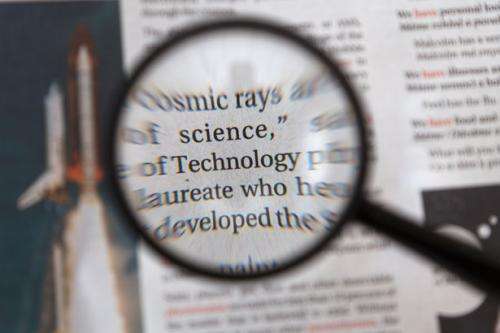Science
Science Journal Retracts Controversial Study on Arsenic-Using Bacteria

A significant development occurred in the scientific community when the journal Science announced the retraction of a controversial study regarding a unique bacterium that allegedly utilized arsenic—a toxic element—for growth. This decision, made on July 25, 2025, has sparked a debate over the nature of scientific discourse and the criteria for retraction.
The original study, released over a decade ago, suggested that a species of bacteria discovered in a California lake could incorporate arsenic into its DNA and proteins. If validated, this finding would broaden the understanding of life’s adaptability on Earth and potentially on other planets. However, several research teams have struggled to replicate these results, raising skepticism about the study’s claims.
In a statement regarding the retraction, H. Holden Thorp, editor-in-chief of Science, explained that the journal’s editors concluded the experiments described in the paper did not substantiate the key conclusions, even in the absence of fraud or manipulation. “If the editors determine that a paper’s reported experiments do not support its key conclusions, a retraction is considered appropriate,” Thorp stated.
Despite this, the researchers involved in the study, including co-author Ariel Anbar from Arizona State University, maintain that their data is valid. Anbar expressed concern over the implications of this decision, arguing that retracting a paper merely due to controversial interpretations contradicts the essence of scientific debate. He stated, “One doesn’t retract a paper because the interpretation is controversial, or even because most disagree with the interpretation.”
The retraction raises questions about the evolving standards for scientific publication. In recent years, Science has increasingly retracted studies for reasons beyond fraud, a shift highlighted by Thorp and executive editor Vada Vinson in a blog post.
The original research received funding from NASA, which has also voiced its disagreement with the retraction. Nicky Fox, NASA’s science mission chief, issued a statement urging Science to reconsider its decision, emphasizing the importance of fostering scientific inquiry and dialogue.
As the scientific community reflects on this incident, the balance between rigorous standards and the freedom to explore challenging ideas remains a central concern. The retraction of this notable study not only impacts the authors but also the broader discourse on the nature of life and the potential for discovery in extreme environments.
For further reading, refer to the retraction notice in Science (DOI: 10.1126/science.adu5488).
-

 Health3 months ago
Health3 months agoNeurologist Warns Excessive Use of Supplements Can Harm Brain
-

 Health3 months ago
Health3 months agoFiona Phillips’ Husband Shares Heartfelt Update on Her Alzheimer’s Journey
-

 Science2 months ago
Science2 months agoBrian Cox Addresses Claims of Alien Probe in 3I/ATLAS Discovery
-

 Science2 months ago
Science2 months agoNASA Investigates Unusual Comet 3I/ATLAS; New Findings Emerge
-

 Science1 month ago
Science1 month agoScientists Examine 3I/ATLAS: Alien Artifact or Cosmic Oddity?
-

 Entertainment5 months ago
Entertainment5 months agoKerry Katona Discusses Future Baby Plans and Brian McFadden’s Wedding
-

 Science1 month ago
Science1 month agoNASA Investigates Speedy Object 3I/ATLAS, Sparking Speculation
-

 Entertainment4 months ago
Entertainment4 months agoEmmerdale Faces Tension as Dylan and April’s Lives Hang in the Balance
-

 World3 months ago
World3 months agoCole Palmer’s Cryptic Message to Kobbie Mainoo Following Loan Talks
-

 Science1 month ago
Science1 month agoNASA Scientists Explore Origins of 3I/ATLAS, a Fast-Moving Visitor
-

 Entertainment2 months ago
Entertainment2 months agoLewis Cope Addresses Accusations of Dance Training Advantage
-

 Entertainment3 months ago
Entertainment3 months agoMajor Cast Changes at Coronation Street: Exits and Returns in 2025









